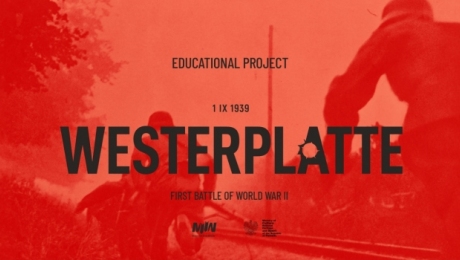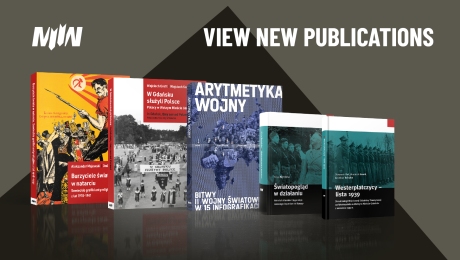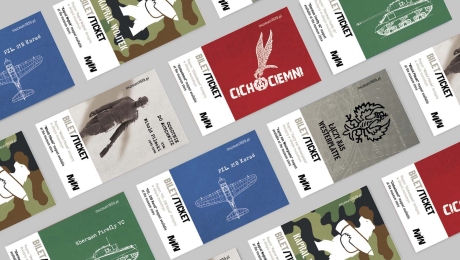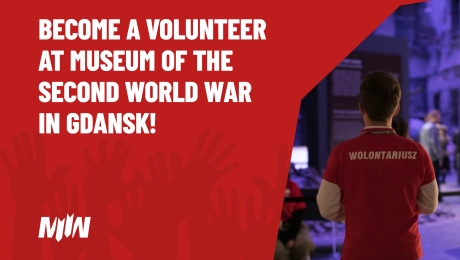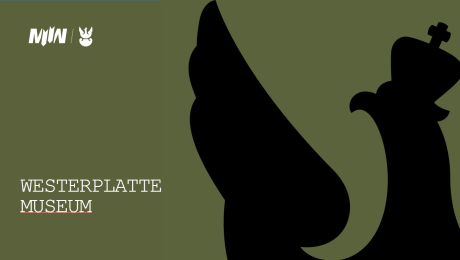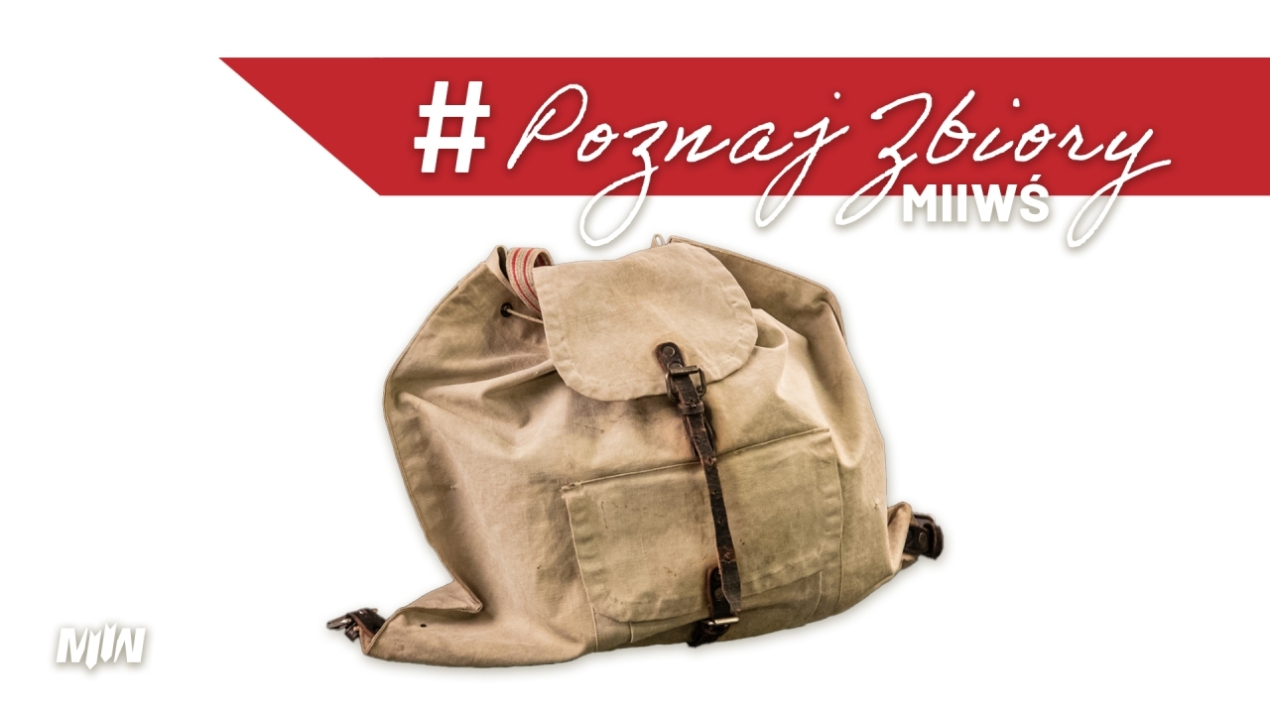The #DiscoverMSWWCollections Series – A Backpack Sewn During the Warsaw Uprising for Fire Victims
Today, as part of our #DiscoverMSWWCollections series, we present a backpack sewn during the Warsaw Uprising for the Baran family, fire victims who lost their home and most of their belongings. German forces destroyed and burned Warsaw’s buildings both during combat and through deliberate actions. Warsaw, 1944.
In besieged Warsaw, in addition to soldiers under the command of the Home Army (known as the AK), hundreds of thousands of civilians remained in the city. Despite support from the Delegation of the Polish Government in Exile and help from neighbors, living conditions were extremely difficult. In many parts of the city, residents were forced to hide in basements. As the uprising dragged on, supplies dwindled, and there were severe shortages of food and water. Pregnant women, infants, and children faced particularly dire circumstances. Malnourished and dehydrated mothers lost their ability to nurse or access any food for their youngest.
The people of Warsaw also suffered under German reprisals, including plundering, assaults, and mass executions. Despite opportunities to leave the city, most civilians remained even in the face of the extent of the German terror.
During the Warsaw Uprising, at least 120,000 civilians were killed, and more than 500,000 people were expelled from the city by German forces.
Collections of the Museum of the Second World War / Donation of Waleria Baran.






